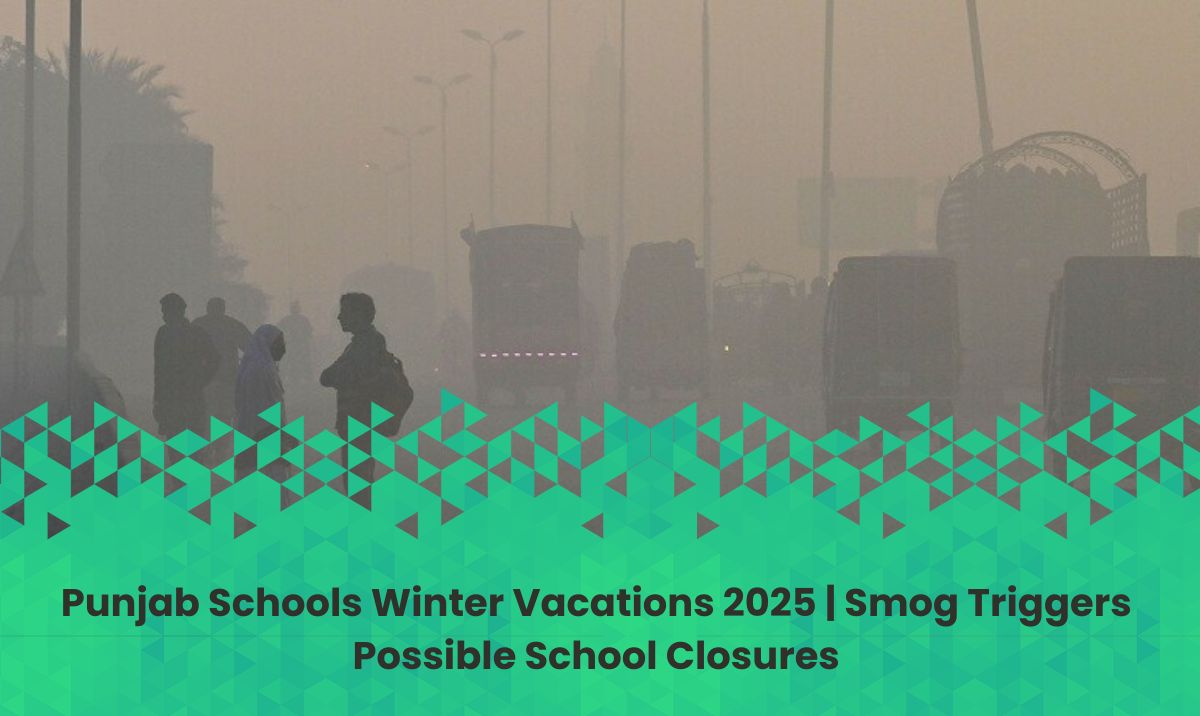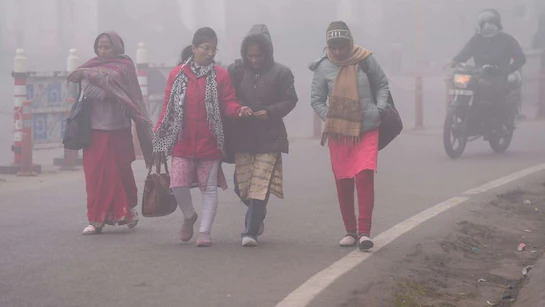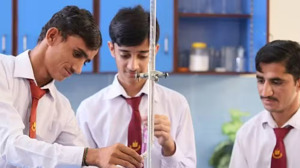
After the latest smog alert issued by the Pakistan Meteorological Department (PMD), a major development has emerged regarding the possible closure of educational institutions across Punjab. With air pollution levels rising to alarming levels in major cities—especially Lahore—the provincial government and education authorities are closely monitoring the situation. Officials have hinted that if smog conditions worsen further, schools could be closed earlier than usual for winter vacations to ensure the safety of students.
According to the latest meteorological report, the dry weather combined with a drop in temperature is contributing to the increased density of smog across Punjab. The PMD has warned that in the coming days, the situation might deteriorate further, making the air more hazardous for children and elderly citizens.
Lahore Tops the List of Most Polluted Cities Again
In a concerning revelation, Lahore has once again been ranked as the world’s most polluted city. The city’s Air Quality Index (AQI) reached a staggering 603—an extremely dangerous level for human health. According to environmental data, breathing in such toxic air can cause severe respiratory and cardiovascular problems.
Last year, the Punjab government had ordered the closure of all educational institutions starting November 3 for one week due to similar smog conditions. The holidays were later extended by another week as the pollution levels continued to rise. This year, officials have not yet announced any closures, but the Education Department has confirmed that multiple contingency plans are being discussed, including partial school closures or shifting to online classes.
Government Monitoring the Situation Closely
An official from the Punjab Education Department stated that the government has not made a final decision yet but is keeping a “strict watch” on air quality trends. The source added that if the situation remains critical, authorities may initially suspend classes at the primary level, as young children are more vulnerable to smog-related health problems.
The government is also reviewing the possibility of implementing hybrid or online learning systems temporarily, particularly in Lahore, Faisalabad, Gujranwala, and Multan—cities where pollution levels have reached hazardous levels.
Alarming AQI Levels Across Punjab
Recent data shows that the air quality in several Punjab cities has reached extremely dangerous levels.
-
Lahore: AQI 603
-
Faisalabad: AQI 833 (classified as “severe”)
-
Gujranwala: AQI 764
-
Multan: AQI 305
-
Delhi (for comparison): AQI 445
These figures indicate that air pollution is not limited to Lahore alone; rather, it has spread across much of central and southern Punjab, affecting millions of residents.
Health Experts Warn of Rising Respiratory Illnesses
Health professionals are expressing deep concern over the worsening air conditions. Renowned physician Professor Dr. Javed Akram stated that Lahore has now reached one of the highest pollution levels in the world, causing a rapid increase in respiratory infections, persistent coughs, throat irritation, and eye allergies.
Dr. Akram urged citizens to take strict precautions. “People should wear masks when stepping outside, increase their water intake, and ensure that elderly and immunocompromised individuals receive pneumonia vaccines to reduce seasonal health risks,” he advised.
Hospitals in Lahore and nearby districts have already reported an uptick in patients suffering from asthma and other breathing difficulties, directly linked to poor air quality.

Government’s Anti-Smog Measures Intensify
In response to the worsening situation, the Punjab Environment Protection Department (EPD) has intensified anti-smog operations across major cities. The government has imposed a ban on dry sweeping of roads and streets and prohibited the use of lime-based cleaning methods to reduce dust and particulate emissions. Authorities are also cracking down on smoke-emitting vehicles, industrial units, and crop residue burning.
Meanwhile, citizens are being advised to limit outdoor activities, especially during early morning and evening hours when smog density is at its peak. Environmental experts have stressed that reducing vehicle use, avoiding open garbage burning, and planting more trees could help alleviate long-term pollution issues.
Possible School Closures and Winter Breaks Ahead
Sources within the Punjab School Education Department revealed that the government may opt for an early winter vacation schedule if pollution levels do not improve in the coming week. A final decision is expected within the next few days after consulting with health and meteorological experts.
Officials are also exploring the possibility of city-specific closures rather than a province-wide shutdown, depending on the AQI readings. This approach would help minimize educational disruption while ensuring student safety in the most affected areas.
The Education Department has also hinted at the potential use of online platforms to continue academic sessions, similar to those used during the COVID-19 pandemic, if schools are forced to shut down temporarily.
Public Advised to Take Caution
Authorities have strongly urged citizens to avoid unnecessary outdoor movement, especially children, the elderly, and those with pre-existing respiratory conditions. Masks, air purifiers, and indoor ventilation precautions have been recommended.
Until a formal decision is made regarding school closures, the government continues to emphasize community cooperation in reducing pollution sources and protecting public health.
As smog continues to engulf Punjab, particularly Lahore and surrounding cities, both the public and private sectors are bracing for possible disruptions in routine life. The Punjab government’s next move—whether announcing early winter vacations, partial school closures, or online learning—will depend heavily on the air quality data in the coming days.
While the situation remains uncertain, one thing is clear: protecting students and citizens from hazardous air pollution has now become a top priority for Punjab’s education and environmental authorities.















